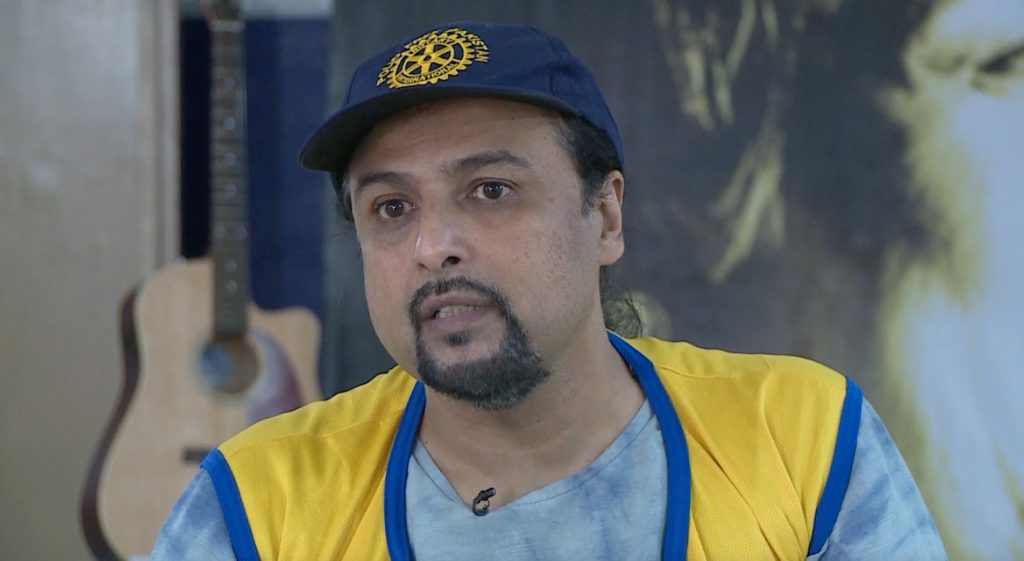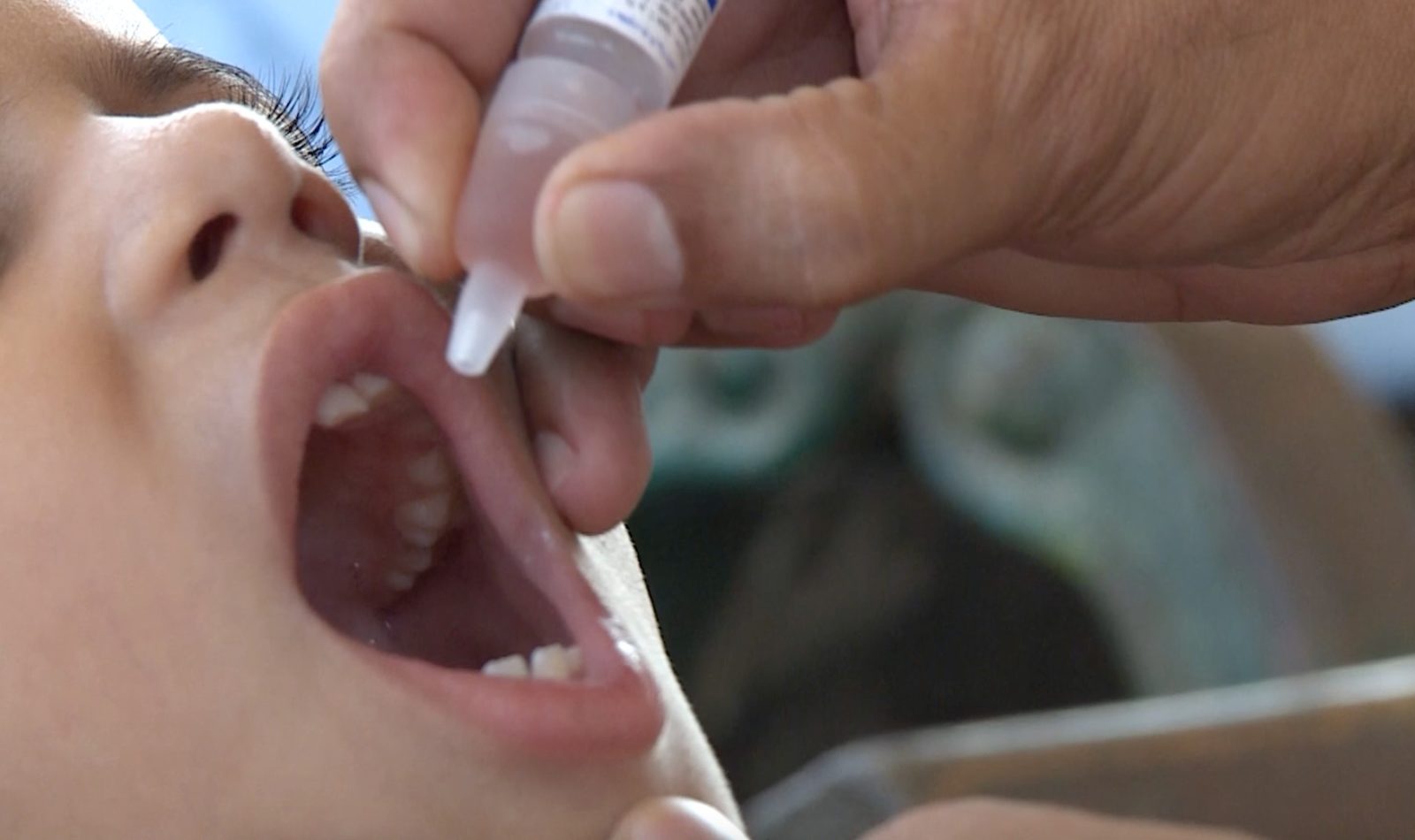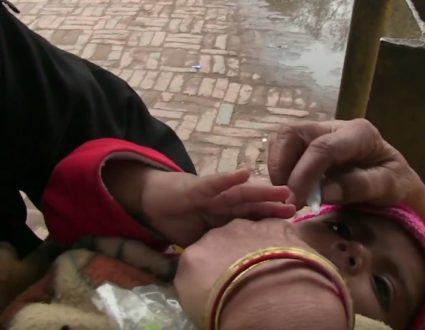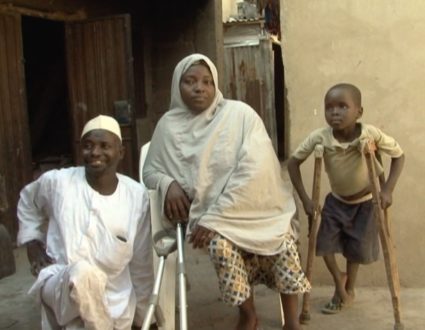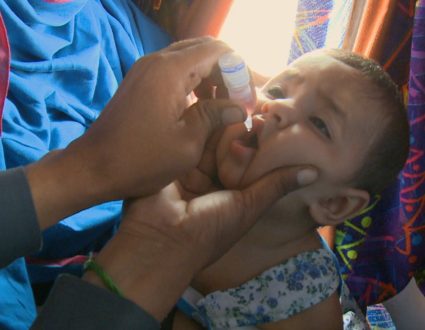Judy Woodruff: Now: the first of two-part series looking at Pakistan.
Tonight, we focus on the country’s campaign to eradicate the polio virus, which remains endemic in regions of just three countries, Nigeria, Afghanistan and Pakistan.
In cooperation with the Associated Press, special correspondent Fred de Sam Lazaro reports.
It’s part of his series Agents for Change.
Fred De Sam Lazaro: Salman Ahmad is one of Pakistan’s most recognizable public figures, a rock musician whose group, Junoon, has sold millions of albums and filled large stadiums in recent decades.
Today, Ahmad has become known as the Bono of Pakistan. His cause? Raising public awareness for the country’s campaign to eradicate polio, which he reminded these students is very close to its goal.
Ahmad appears in TV spots and restricts his public appearances to small groups, illustrating a key challenge for the polio campaign.
Salman Ahmad: We used to do concerts here where 100,000 people could come in these stadiums, like the Karachi — national stadium in Karachi. Now everything has gone underground. We can’t go and do public concerts, just because of the threat of violence and threat — the extremist threat.
Fred De Sam Lazaro: That threat is the main reason Pakistan is one of only three countries in the world where the crippling viral disease remains endemic.
The violence has specifically targeted polio campaigners. Several dozen vaccinators and security personnel have been killed by Taliban gunmen.
Salman Ahmad: When I arrived here, there was a lot of confusion, there was a lot of chaos because of the Taliban spreading this disinformation that there’s something in the polio vaccine which is un-Islamic.
Fred De Sam Lazaro: Not helping the cause, the CIA conducted a fake vaccination campaign in the area where it suspected Osama bin Laden was hiding, trying to collect DNA matches from family members. That severely damaged public trust.
Despite all the challenges, Pakistan has seen an impressive drop in new cases, from more than 300 cases in 2014 to just five in 2017.
Dr. Zulfiqar A. Bhutta: We hope we are really at an advanced stage of the polio end game.
Fred De Sam Lazaro: Dr. Zulfiqar Bhutta is a leading expert on the country’s polio campaign. He says there’s been a concerted effort to plug the gaps, led by Rotary International and a number of partners, including Pakistan’s religious leaders and army.
Dr. Zulfiqar A. Bhutta: Pakistan, particularly in the conflict-affected insecure areas of the country, has made tremendous inroads.
Fred De Sam Lazaro: Violence and extremism have made many parts of Pakistan inaccessible to the polio campaign, so vaccinators have fanned out to places where people are coming and going from these regions, looking for small children in places like Karachi’s main railway station.
Salman Ahmad: The real hero is the polio health worker, mostly the women, who are out on the front lines going and immunizing the kids.
Fred De Sam Lazaro: They are campaign veterans, like Saeeda Banu. Banu and her colleagues look out for young children, coaxing the three drops of oral vaccine into sometimes reluctant customers.
For Banu, the job is personal.
Saeeda Banu: (Through interpreter) I had two sons. Both developed polio, and the older one died. This happened to my children, and so I want to make sure that it doesn’t happen to other children.
Fred De Sam Lazaro: She worries about her surviving son, Abdul Wajid, who is 16 and severely disabled.
Saeeda Banu: (Through interpreter) He was completely normal at birth, then started to show some symptoms at eight months. His feet got twisted, he stopped playing. We have taken him for some operations, and that’s helped him to sit upright. Before, he couldn’t even do that.
Fred De Sam Lazaro: Her husband is on a small pension, and with her own meager salary, things like physical therapy or a wheelchair for Abdul Wajid are beyond reach. Many people live in far worse poverty. And they are the prime target of the polio campaign’s foot soldiers, most of them women.
The vaccinators are trained to anticipate resistance from parents.
Woman: (Through interpreter) Our vaccines comes from Indonesia. And Indonesia is a Muslim country.
Fred De Sam Lazaro:Accompanied by a policeman, the vaccinators, many from the same neighborhoods in which they work, go door to door.
Security is only one concern that can hinder their progress. Conditions on the ground are often ripe for polio, waste of all kinds, and flooding when it rains. And tests this year detected the prevalence of the polio virus in this Karachi slum.
Only a small proportion of people exposed to the polio virus develop the disease, and small children are most vulnerable. The workers try to get as many as they can, but families here are mostly transient, moving as they look for daily labor jobs to survive.
Their mobility increases the likelihood their children won’t get the oral vaccine, or at least a full course, ideally at least three doses. Another challenge, polio is simply not a priority, says Dr Bhutta.
Dr. Zulfiqar A. Bhutta:I think, to an average person who’s lost his child due to diarrhea or has lost his daughter-in-law due to hemorrhage after childbirth, there is more to life and misery and hell than polio.
They have got to place polio in the context of everything else.
Fred De Sam Lazaro:New infections are at an all-time low, but the virus is still active and able to spread, and Bhutta’s biggest fear is a combination of complacency and exhaustion, especially in certain regions.
Dr. Zulfiqar A. Bhutta:
The job isn’t done until the job is done. With polio, you can’t afford to even have one or two cases.
Fred De Sam Lazaro: As long as there’s a single case, he says, polio remains a global threat, not just a localized one.
So the campaign, with Salman Ahmad and other celebrities, continues and hopes to keep polio front and center in public consciousness, in pursuit of the big zero.
For the PBS NewsHour, this is Fred de Sam Lazaro in Karachi, Pakistan.
Judy Woodruff: Fred’s reporting is a partnership with the Under-Told Stories Project at the University of St. Thomas in Minnesota.
Tempered Success
Polio remains prevalent across Pakistan, one of only three countries in the world where the crippling viral disease is endemic. A campaign to dispense vaccinations have helped relieve the crisis, but threats of violence and misinformation from the Taliban are still hampering eradication efforts. In cooperation with the Associated Press, special correspondent Fred de Sam Lazaro reports.
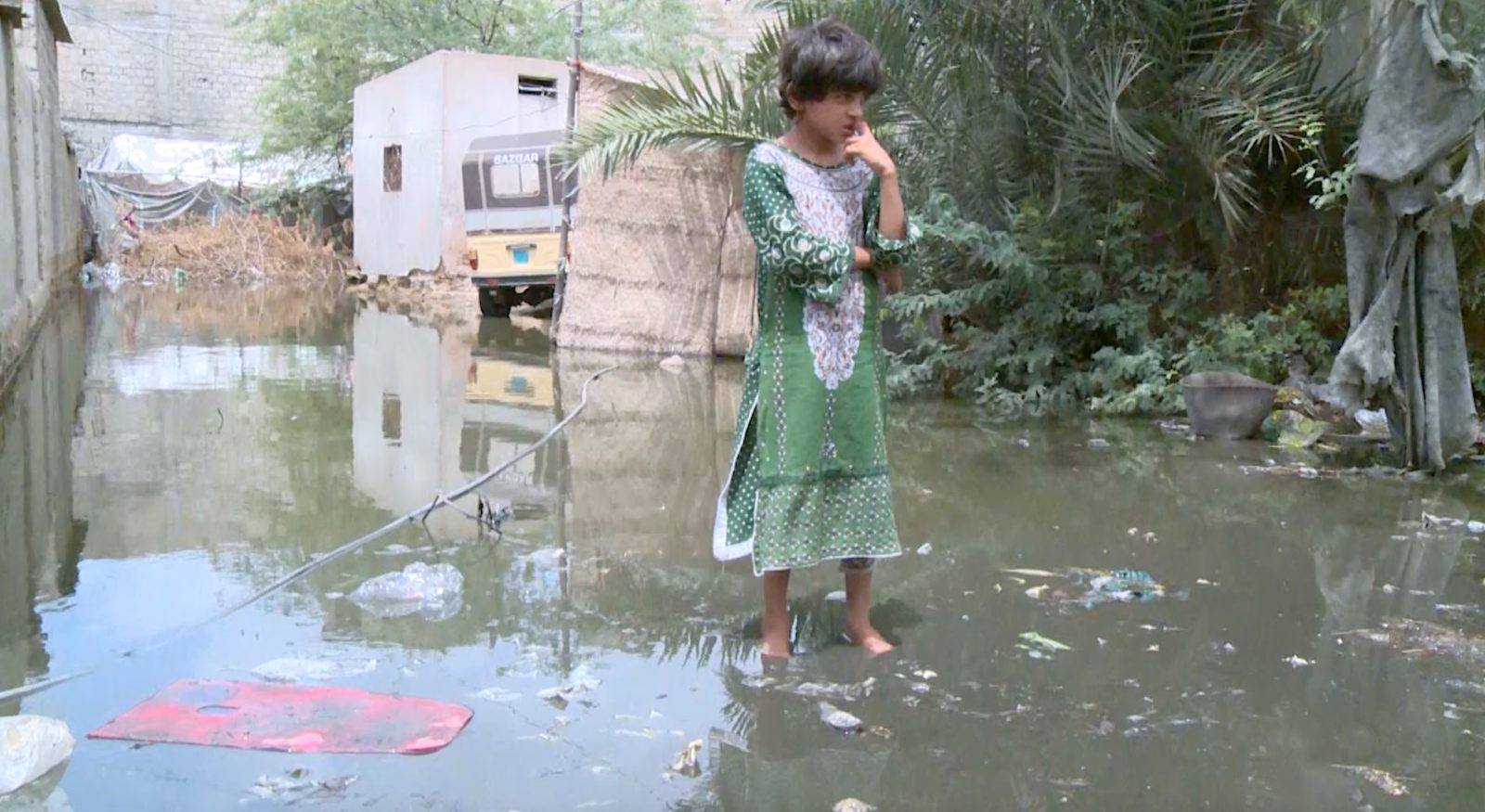
The Polio Habitat
Conditions on the ground are often ripe for polio, waste of all kinds, and flooding when it rains. Tests in 2017 detected the prevalence of the polio virus in this Karachi slum.
Rock and Roll and Polio
